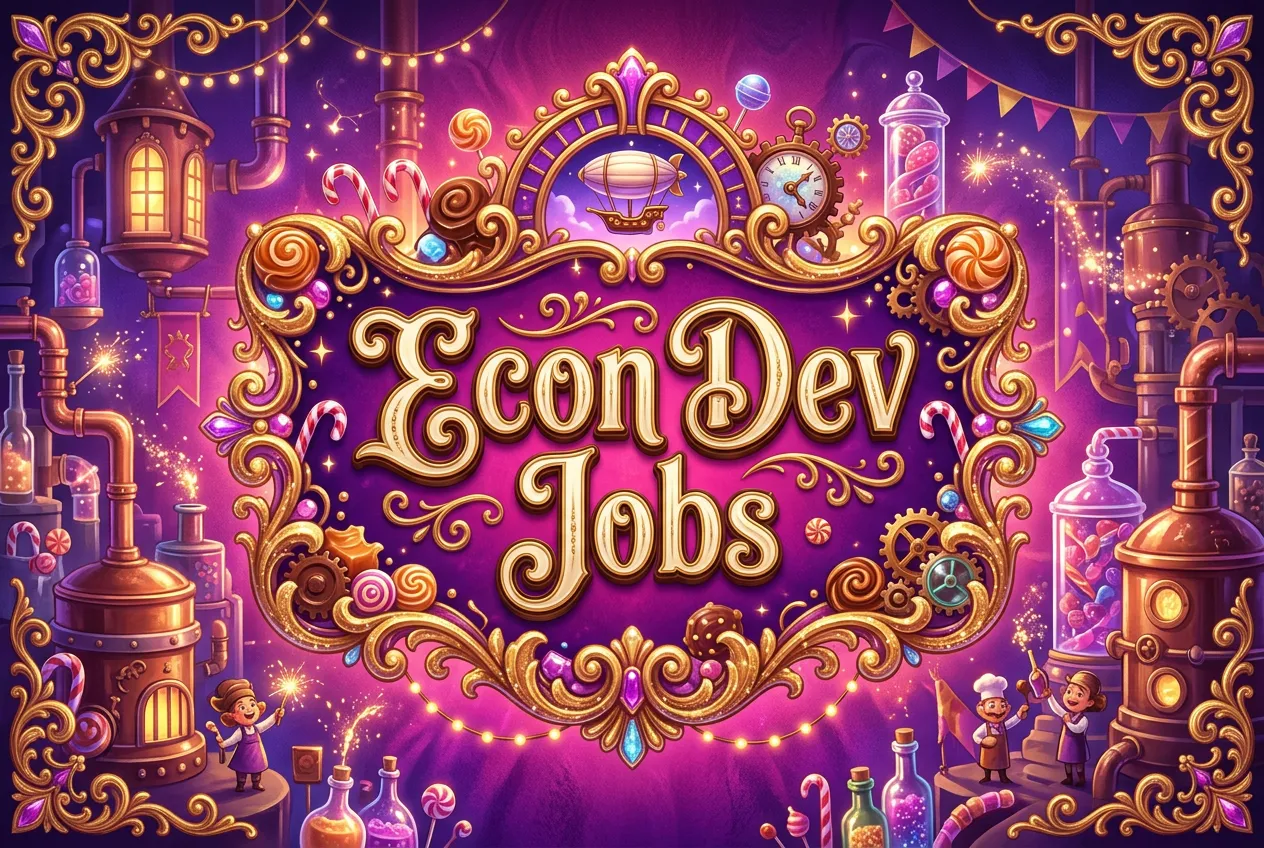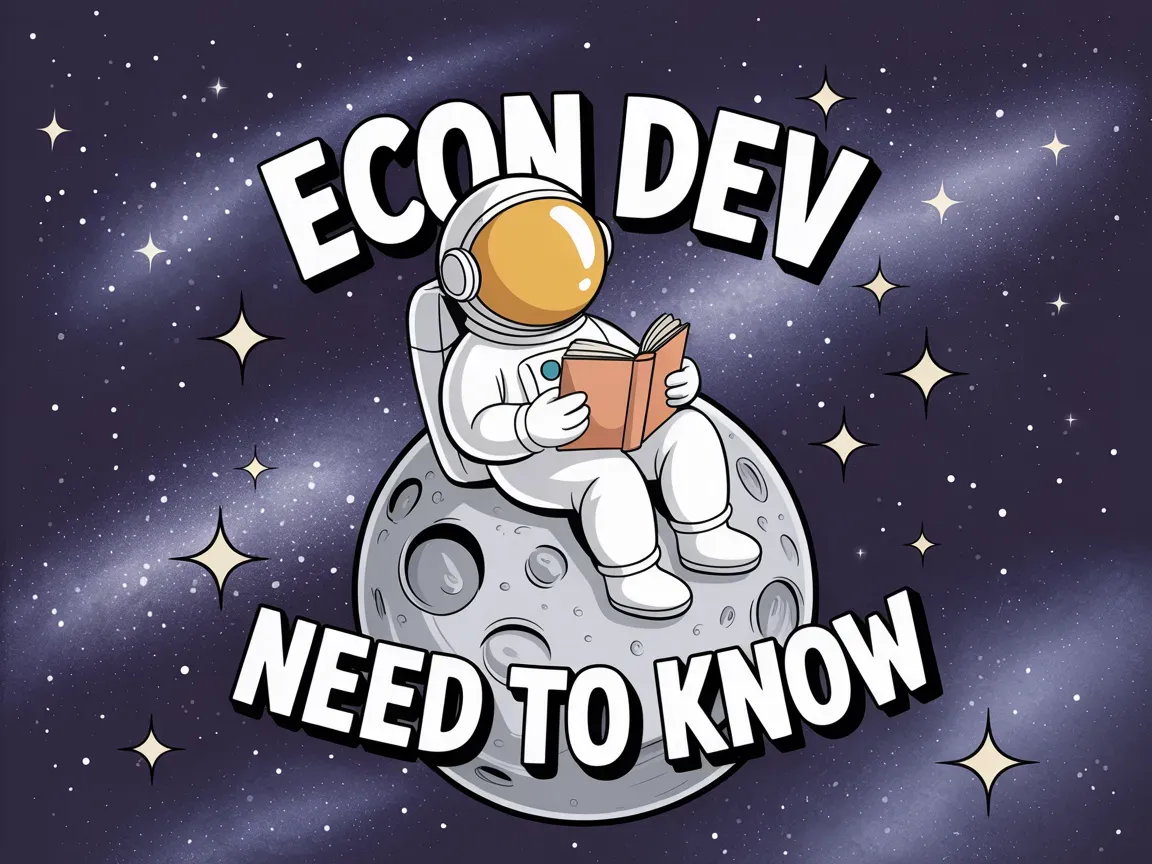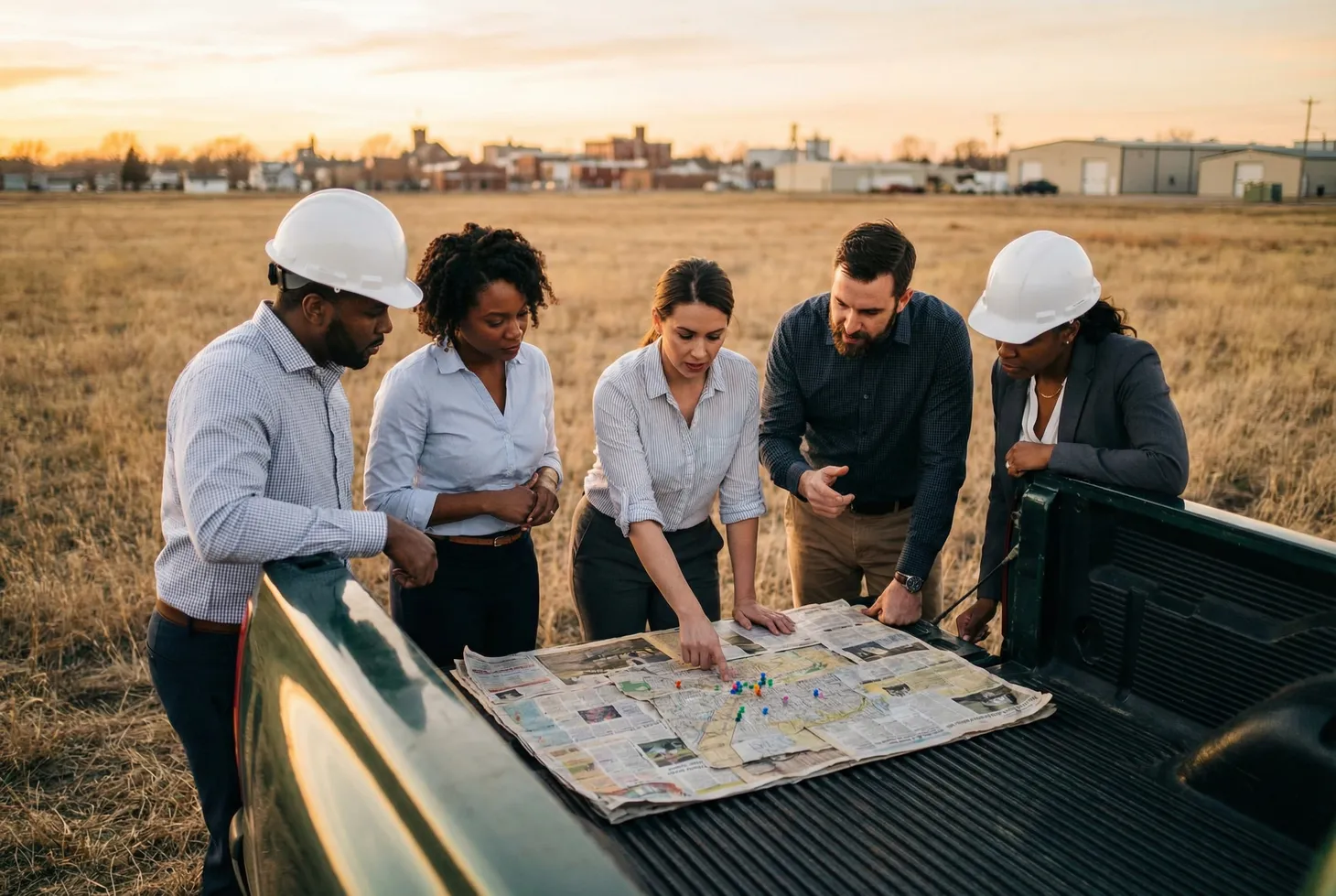Podcast 168: Reimagining Economic Transformation for Distressed Communities with Rohan Sandhu
Where workforce developers and economic developers finally realize they're in the same meeting.
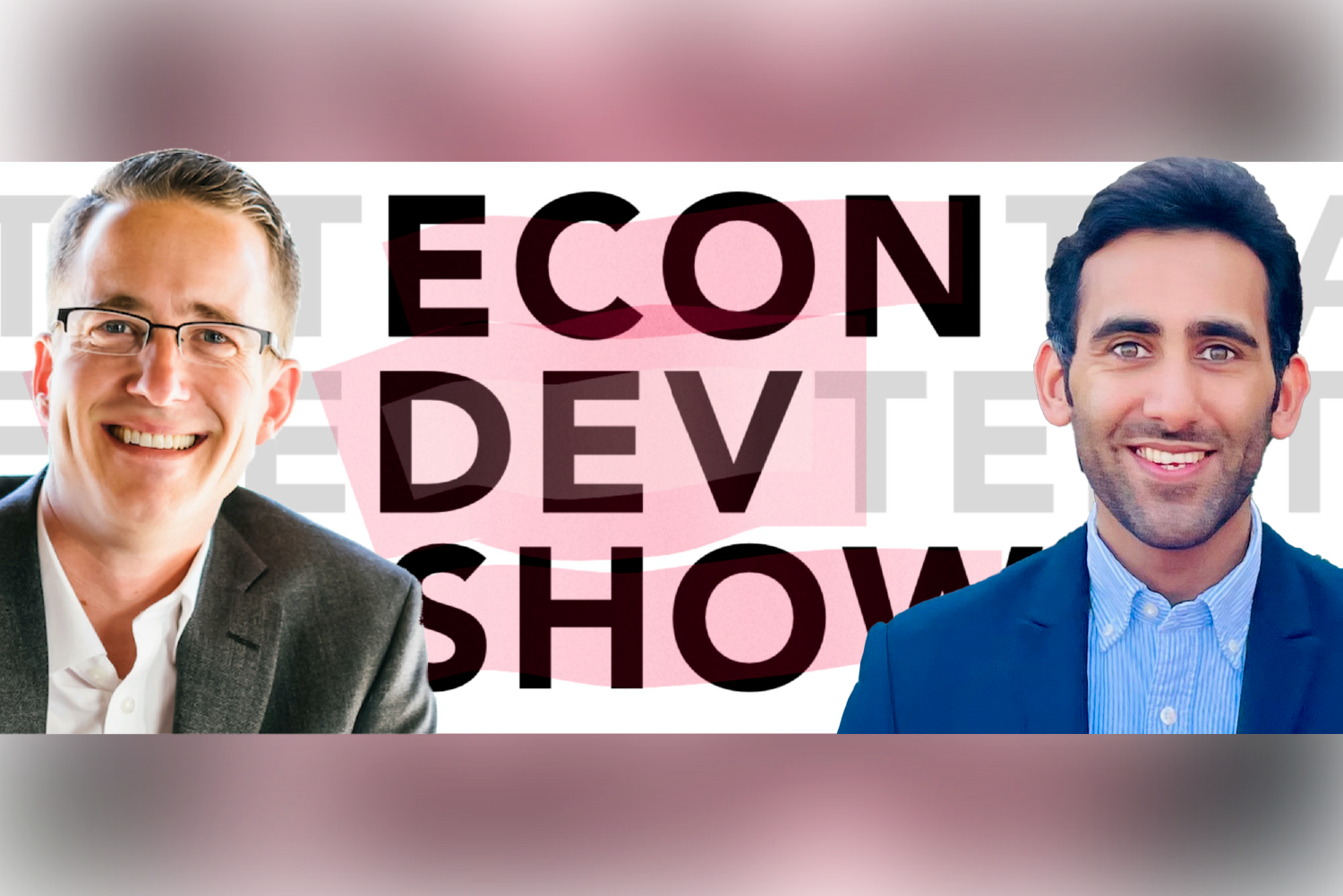
Table of Contents
Episode 168 of the Econ Dev Show Podcast is out.
In this episode of the Econ Dev Show, host Dane Carlson sits down with Rohan Sandhu, co-founder of the Reimagining the Economy Project at Harvard Kennedy School, to examine the convergence of industrial policy, market crafting, and place-based economic development strategies.
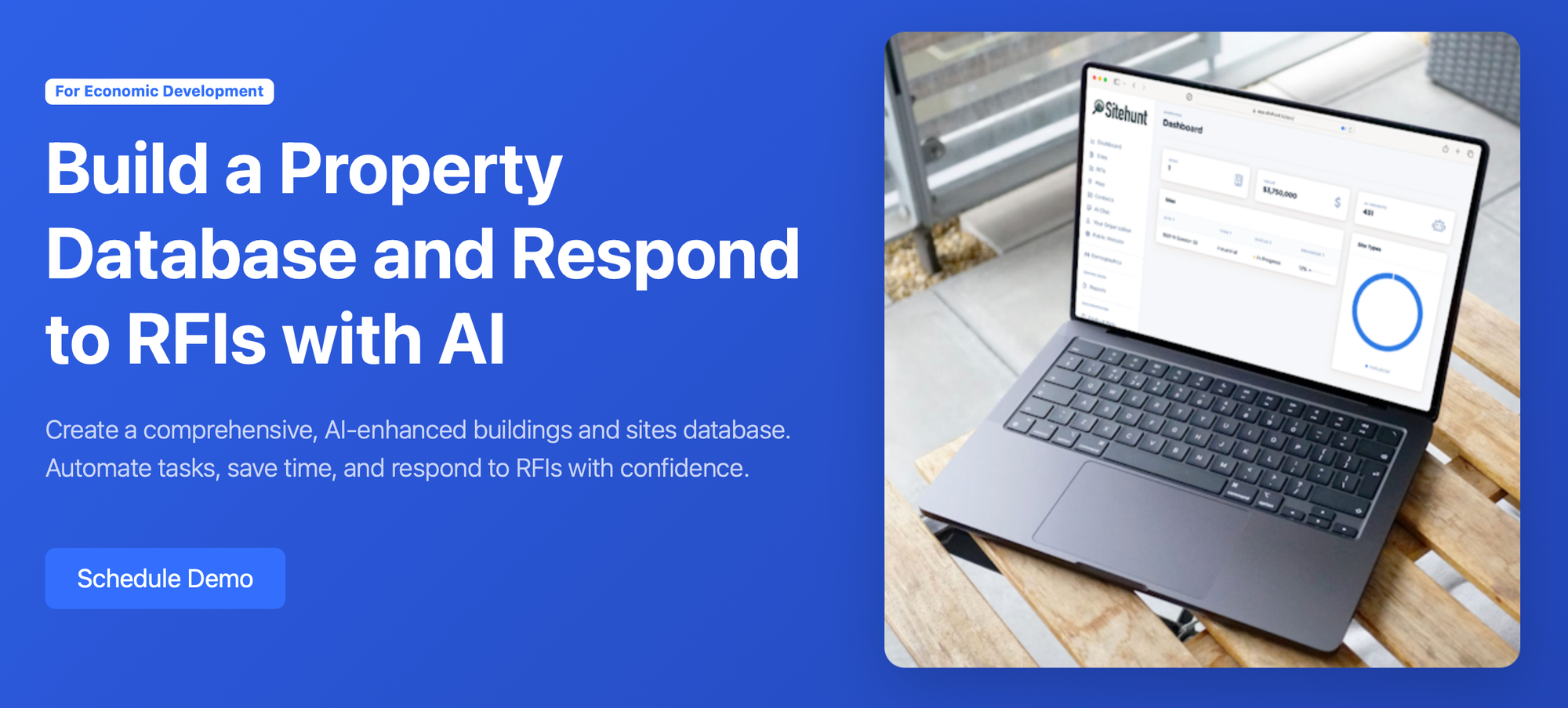
Drawing on his 15 years of experience at the intersection of research and practice, Sandhu discusses how traditional economic development approaches often fail distressed communities due to uncoordinated policies and limited local capacity. They explore how forward-looking economic transformation requires moving beyond reactive, transactional approaches to development and better aligning workforce systems with economic growth initiatives.
Sandhu's insights from his work on projects like "Bottom-Up Bidenomics" and "The US Place-Based Policy Supply Chain" offer practical guidance for practitioners seeking to build more resilient local economies.
Like this show? Please leave us a review here — even one sentence helps!
Ten Actionable Takeaways for Economic Developers
- Shift from reactive, crisis-driven economic development to forward-looking strategies with a clear vision for transformation.
- Focus on building local institutional capacity as a foundation for implementing any economic development initiative.
- Identify and address the coordination gaps between overlapping economic development policies at federal, state, and local levels.
- Recognize the limitations of matching fund requirements that often exclude the most distressed communities from accessing resources.
- Develop funding models for local intermediary organizations that support capacity-building, not just project implementation.
- Integrate workforce development explicitly into economic growth strategies rather than treating them as separate domains.
- Use data visualization tools like economyinplace.com to better understand local labor markets and policy flows in your region.
- Examine how industrial policy principles can be applied practically to support small and medium enterprises in your community.
- Identify opportunities for "productive upgrading" of service sectors that absorb local labor.
- Design economic development strategies that directly target persistent economic distress rather than focusing primarily on already-advantaged areas.
Episode Links
- Rohan Sandhu | LinkedIn
- Rohan Sandhu | Harvard Kennedy School
- Industrial Policy Is a Verb - ProMarket
- Servicing Development: Productive Upgrading of Labor-Absorbing Services in Developing Economies
- Industrial policy for micro-, small- and medium-sized enterprises | VoxDev
- Policy Works Podcast | Harvard Kennedy School
- Recoding America by Jennifer Pahlka
- Power, for All: How It Really Works and Why It's Everyone's Business: Julie Battilana and Tiziana Casciaro
Insights from the Show: Reimagining Local Economies: A Conversation with Rohan Sandhu
Industrial policy expert Rohan Sandhu discusses how communities can craft markets, develop workforces, and revitalize struggling local economies.
In an era of increasing economic inequality between regions, the question of how to revitalize struggling communities has taken on new urgency. Rohan Sandhu, who leads the Reimagine the Economy Project, believes the answer may lie at the intersection of industrial policy and place-based economic development. As tariffs and trade policies dominate headlines, we spoke with Sandhu about how communities can build more inclusive economic futures.
Let's start with some basics. You're working at the intersection of industrial policy and place-based development. Can you break these concepts down for our readers?
When we talk about industrial policy, we're really discussing the provision of public inputs that firms need to work productively in an economy. In practice, this means supporting small businesses and entrepreneurship, developing workforce capabilities, providing technological inputs, and creating local strategies and planning. Economic developers are already practicing these approaches, even if they don't explicitly call it "industrial policy."
Place-based economics stands in juxtaposition to people-based economics. Place-based policy directs resources toward improving the productive capacity of a specific location rather than focusing solely on individual mobility. The goal is to strengthen the economic foundations of communities that might otherwise be left behind.
In recent years, economic developers have been surprised by significant workforce challenges. There simply aren't enough people to fill jobs in many areas. How does this connect to the disconnect between economic development and workforce development?
This is where we see a significant gap between workforce and economic development. Despite efforts to integrate these domains, they operate under very different incentive structures. Workforce organizations receive funding from federal and state levels with specific performance metrics attached, which don't always align with economic development goals.
Economic developers suddenly found themselves facing workforce shortages they never anticipated. Understanding the different incentives that drive workforce organizations is crucial for economic developers who want to collaborate effectively. The integration is always affected by these different funding structures and priorities.
Your work seems to challenge the notion that economic growth automatically generates a well-functioning workforce system. Can you elaborate?
Economic growth is not simply a product of an educated, well-functioning workforce system. There's a more complex relationship at play. At the Reimagine the Economy Project, we're trying to bring together industrial policy and market crafting approaches with place-based policy to address persistent economic distress.
This combined approach allows us to think more holistically about development—recognizing that we need both strong local markets and the human capital to make those markets function. By bridging these fields of research, we can develop more effective strategies for communities facing economic challenges.
Econ Dev Show Newsletter
Join the newsletter to receive the latest updates in your inbox.
